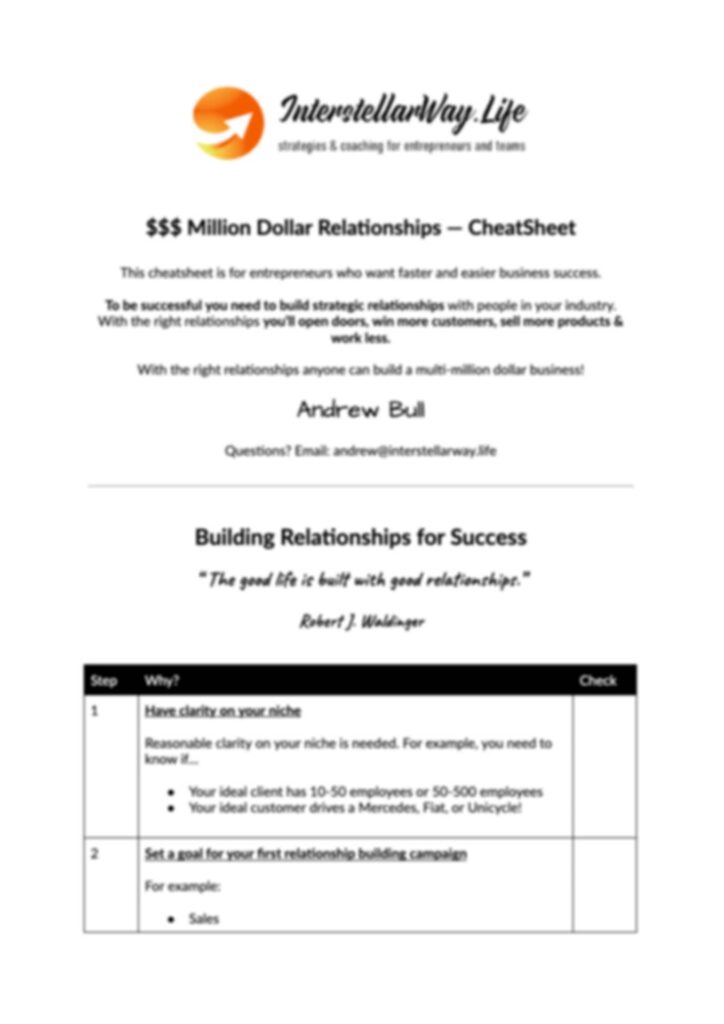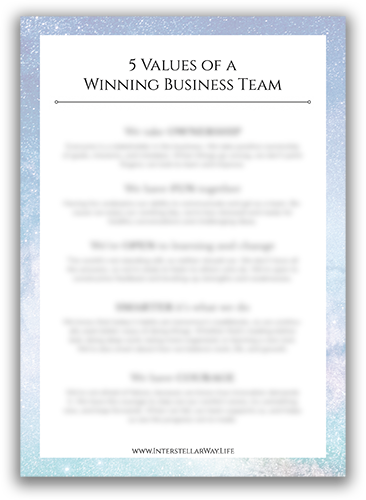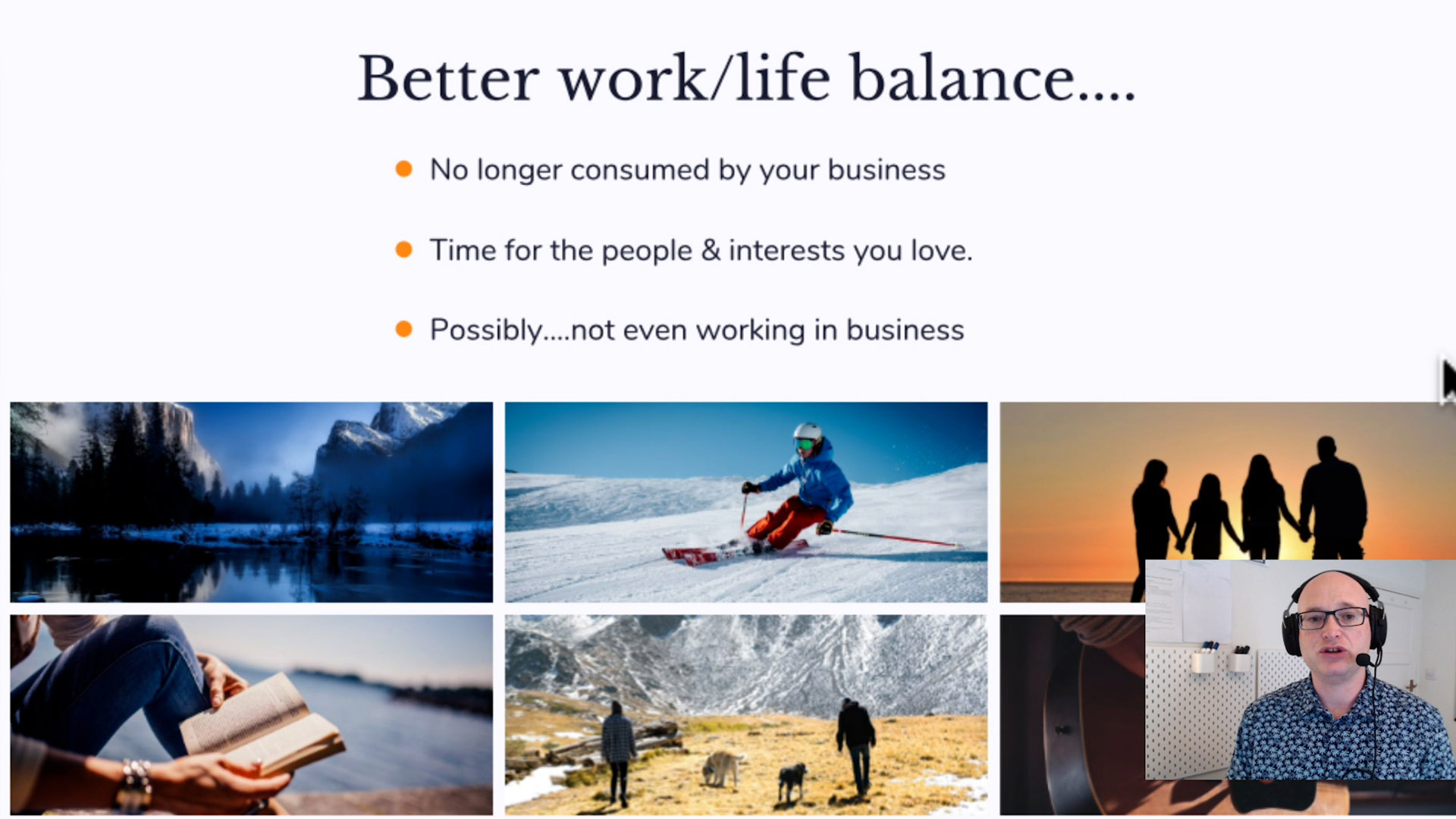Interstellar Business Show
Podcast for Technology CEOs and their teams.
It's time to grow your mind, elevate performance, and own your future 🚀

Interstellar Business Show
Episode: 0005
Voice Apps: Anmol Oberoi discusses future of Voice Apps.
Featuring....

Episode Introduction
Andrew is joined by Anmol Oberoi, CEO at Emitrr, a platform that allows businesses to build and publish Apps on Alexa. Anmol shares his experience of building voice applications on Alexa and discusses with Andrew the importance of voice for consulting, retail, consumer services, and content engagement — if you’re thinking about getting your business found via voice or want to leverage voice automation — this is a must listen.
Episode notes & resources
Twitter – https://twitter.com/obanmol10
Linkedin – https://www.linkedin.com/in/anmol-oberoi-3a298980/
Emitrr – emitrr.com
Transcript
Please note, this transcription is autogenerated, so there may be errors.
Andrew Bull 0:15
This week’s show is all about the power of voice apps. If you’re thinking about getting your business found by voice, or want to leverage the power of voice applications, this episode is a must listen. And there’s no escaping home hops and voice assistance, voices coming to our home and office near you. Whether you like it or not. I know you’re thinking, but it’s the market for voice really that big. Well, in the US 75% of household forecast, have a smart speaker by 2020. So it’s big. With that in mind, let’s dive into this week’s episode. Welcome to the show, and mo and I hope I’ve said your name correctly. So you’re an expert in building voice applications is that Right.
Anmol Oberoi 1:00
That’s good. Thanks a lot, Andrew, for having me on the show. I’m really excited to be a part of the show.
Andrew Bull 1:04
You’re welcome. It’s great to have you here with us today. So what’s the voice application? Can you share some examples? I guess I kind of feel like I know what voice app application is. But I’d really be interested in, in learning a little bit more about what does one look like?
Anmol Oberoi 1:19
Sure. Essentially, a voice application is nothing but an application that can allow you to do you know sort of things, but by using your voice instead of text, or it’s a hands free application. So you anything that you do on the website or on your mobile, for example, if you read a blog, or you listen to a podcast on the website, or on your mobile, you could do the same without the usage of the web and text through voice. So it’s essentially a transition from web mobile, to voice that’s that’s exactly what a voice application and the use cases can be. If you have to think creatively they could be you know, possibly almost everything can be done through voice.
Andrew Bull 1:59
Okay, yeah. So This is just this is, you know, we’ve had, we started off with the keyboard and the mouse. And then we got the video camera plugged into the computer. And we had touch pads, and now we’ve got voice. So it’s another way of getting input into your, into your data device, I suppose.
Anmol Oberoi 2:15
Absolutely.
Andrew Bull 2:16
Okay, cool. So this show is very much targeted at consultants and people who advise or help or growing technology companies, and we do have a lot of consultants who listen so can you give an example for example, let’s say, a cyber security consultant, how might they benefit from voice applications with their business.
Anmol Oberoi 2:39
Sure. So I think like I said, voice has, you know, different use cases that we’ve seen by talking to customers by meeting prospects and learning from them? I think people have been really, really creative in the way they wanted to use voice. But if we had to talk about consultants specifically, and if they had to streamline their, let’s say, day to day operations of the business, there are multiple things that they can do. Like for example, let’s say that if a consultant fetches a lot of reports accesses a lot of data, as of today, the interaction on GY, which is graphical user interface on the web, is hierarchical in nature, you need to go from step one to step two, step three, to ultimately fetch the data point that you’re looking for. With voice, that’s the advantage. You don’t really need to do that. Because if you’re looking for a data point, let’s say if you’re looking for your sales stats, for a particular day in a particular region, you can simply say that, Alexa, fetch me the sales that for a pack on November 5. Similarly, if we had to talk about let’s say it support, then with voice The advantage is that instead of having to open your mobile or having to open your laptop to log a case, you can simply ask Alexa or Google Home or a voice assistant to log case for a support that you’re looking to raise a case for this is specifically very, very interesting. Because if you’ve noticed, let’s say in case of Telecom, or in case of any other industry, when you’re trying to call people, and if it’s after office hours, it’s not possible to know the case. But with Alexa, that’s possible, and the case goes directly into their support system. So these are different use cases, that consultants can use this for, apart from all the other use cases that I can pick off.
Andrew Bull 4:24
Okay. And that’s what I find that really interesting because there’s two sides to that, really, there’s one way like from the consultancy perspective, you’re using voice as a shortcut to really dig through a lot of data very quickly, to reveal the metric in the insight you need. And I think that could be that could be really powerful. Then the other flip side of that is that it’s a quick way, it’s a quick way of putting a request out there. So there’s like they’re speeding up the request for data, and they’re speeding up giving a request for help. And I can Yeah, I can see from a support standpoint of view as well. That I’m busy, and I’m trying to do four things, you know, running around that, actually, it’s quite burdensome to maybe to type out a long support ticket in a way that makes sense. Whereas when I’m talking, and I’m explaining the tech problem that I have that I need to launch, it’s much easier to do that naturally. And I can do it, you know, on the bus, or, you know, when I’m walking to my car, then the day so I can, I can totally see the benefits there. And in terms of scale, so let’s say we’ve got a small consultant, maybe a solo consultant, who wants to get started with a voice up. How easy would it be for like a solo entrepreneur to actually get started with with using for, you know, a voice app?
Anmol Oberoi 5:45
Sure. I think that’s a great question. And that’s something that we’ve been asked by a lot of people starting with a voice app or exploring the way space, I think it’s very, very easy and respective of the scale you’re at whether you’re a solo consultant or you’re a big corporate The only place where challenges come to picture is that if you really want to publish a voice app on Alexa Google Home, the certification is really difficult because they want to maintain the quality and the design of the app. So that’s where challenges come in. And you will need to do a lot of research to identify what a good voice design practices you need to lead through the APS. That’s where the difficulties come in. But apart from that, understanding, the waste space for even a solo entrepreneur is very, very easy to basically pay it forward sort of technology. I think from an Amazon and Google perspective, they’ve advanced a lot and taking the technology to a place where it’s very easy for people to build these apps.
Andrew Bull 6:42
And would you say the Amazon with Alexa and Google, are they the main players in this space then?
Anmol Oberoi 6:48
There are a lot of players in the white space and I think voice has a history with mobile. Of course it happened on mobile began as a device. But today it’s become smarter with Alexa and Google homecoming it but There are other devices as when there is Samsung’s Bixby. There is Cortana apples getting into the space. And of course, you have see through Apple, apples also plan to come out with its own smart speakers. So there are a bunch of such products, which are there in the market apart from an exciting movie home.
Andrew Bull 7:19
Okay, cool. And is Alexa doing anything unique about this approach? Because I understand that you’re an expert in building Alexa voice applications. There’s a reason that you focused on Alexa.
Anmol Oberoi 7:30
Right. I would say from a technology perspective, I think Amazon and Google are way ahead. But from a customer penetration perspective, and from a platform side of things. What that really means is so that one Alexa and Google Home, you know, are available to over about 150 million people globally, which is huge in terms of penetration of smart speakers. And from a development side, I think Amazon and Google have provided a great, you know, software development kit. They’ve provided APS deployment documentation so that people can build stuff on top of these platforms. I think that’s where Bixby and city still have a long way to go. And that’s why we don’t hear a lot about building voice apps on top of experiences.
Andrew Bull 8:18
Okay, interesting. So from your point of view, kind of Alexa and Google are kind of interchangeable, would you say in terms of what they can do?
Anmol Oberoi 8:27
Ah sort of. Yes, they are, in terms of what they can do every customer that we work with, if we launched them on Alexa, the next obvious question for them is that hey, do you also have mobile home capability? So I think in people’s mind, a smart speaker is nothing but Alexa Google Home.
Andrew Bull 8:44
Okay, so I suppose the reason then to be on both is obviously you get double the market available for you.
Anmol Oberoi 8:50
That’s correct. Although Alexa the most market share today. But actually that Google with its marketing powers will soon get there.
Andrew Bull 8:57
Alexa at the moment is the like the speaker that you have in your your living room. But are they rolling out Alexa or anywhere else? And we’re going to see that beyond the speaker.
Anmol Oberoi 9:06
Absolutely. I think the goal really is to make the world more voice enabled. Alex has already, you know, present on beats the headphones brand. So you can integrate into that. It’s already installed in a lot of cars. So you have an expense at the car, you can talk to the annex and say for example, you’re reaching home, you can tell Alexa, open the door of the garage. And for example, you’re reaching out when you want to order food on the way you can tell Alexa order food while you’re driving. So it’s their beats, it’s their cars, it’s quickly getting added to a lot of other devices. For example, a lot of homes today are installed with Alexa and our smart homes.
Andrew Bull 9:46
It’s interesting. Do you think we’re going to see a more universal voice case? Because I suppose, you know, just thinking about this right now. Alexas probably weak point is it’s not on a phone right?
Anmol Oberoi 9:59
It is on a phone, not the way Google is not centres, but through the app. So you have to download an app. And I agree that that’s probably a weak point.
Andrew Bull 10:08
Yeah. So that’s where we Yeah, I can see you might still be able to get it is a slight weak point. And I suppose it mostly Google might have it directly on the phone. But they don’t have that connection to like e commerce, for example. You know, Amazon has got such an amazing sales platform for selling their own Alexa, right that they’re selling. So I’m interested to see if there’s some point they might share technology so that people don’t have to do double the development. And is it a case of doing the double development if you need to develop for Google Home? And for Alexa, we start you starting over?
Anmol Oberoi 10:41
I think that’s a great question from a developer perspective, again, because our customers asked us, yes, the technologies are very, very different. The platforms are different. So if you’re developing from scratch, or you decide to go after the way space and you want to be present on both the apps, you have to double up you know from scratch for both these apps separately. We’ve built our platform today is that you just need to click on a single button to decide whether you want to deploy it on both the next time google home or just Alexa or just Google. But in our app, you just need to design your, you know, engagement once, and then you can decide whether you want to push it on both or not.
Andrew Bull 11:19
So that’s really interesting. So with your solution is agnostic to Alexa or Google Home. Wow, that’s, that’s cool.
Anmol Oberoi 11:27
Yeah.
Andrew Bull 11:27
Kudos to you for designing it. That’s great. That’s awesome. Yeah. And I know, I know what I like about that, as well as you’re not offering updates. So let’s suppose if you want to change your overall strategy to voice or so or something becomes very important for you. Then I suppose updating that one thing across your platform then just rolls out to both rather than going, Oh, we’ve rolled it out on Google. But now I’ve got to come back and roll it out. Alexa, so I love that. That’s great.
Anmol Oberoi 11:54
Absolutely. That’s exactly the idea in mind.
Andrew Bull 11:57
Yeah, no, it’s brilliant. So what problems to device apps. So first, really, you know, what problems are we solving with them?
Anmol Oberoi 12:05
Sure. I think the problem statement is yet to arrive from a waste perspective. As of today, voices a channel, they fit to look at it from a web, mobile and voice perspective. Just the way web started off as a channel for reaching your customers interacting with your customers and then ultimately became a platform. Similarly, the transition happened for mobile, from a channel to complete platform ecosystem. That’s the same thing that’s happening with voice. It’s just the channel today. And the problem that it’s really solving is that, you know, it’s making things convenient for users, making it more interactive. So for example, let’s say in the morning, you realise that you’ve run out of milk, and it’s seven in the morning, you definitely don’t want to open your laptop to place an order or call somebody probably people are not even awake. But that’s where you can use voice to place an order for me. For the store you usually buy things from. So things like that. These are our.
Andrew Bull 13:01
And I suppose if you’re a consultant, then and you forgot to make an appointment or you need, you know, there’s a task that you need to do, you could use voice to set a reminder for yourself or, or add a note to Trello maybe or something like that.
Anmol Oberoi 13:14
Absolutely. But for example, to be worked with one of the companies adopt SAS company based out of India, what they wanted to do is they wanted to use Alexa to manage their projects inside JIRA, which which again, is very similar to Trello. And they I think they’re quite true. They want to manage their projects, as soon as one project is done, and it moves from one stage to another, they just want to tell Alexa, that Alexa more project from stage one to stage two.
Andrew Bull 13:40
Nice and I guess what’s nice about that is the other night, you can do it on the run, or you could be at your computer working on something else. And you don’t have to switch tabs or even changed from what you’re looking at. You can just do it. So I think that’s really interesting. That’s really interesting. I also find this really interesting what you’re saying about channels and platforms, because it does make me think There’s almost like we need to rewire our brain slightly here to think about how voice could really work. And let’s just imagine you could have just a voice driven task management system, we still might have a visual interface, but would be hugely driven by voice. That’d be interesting.
Anmol Oberoi 14:19
Absolutely.
Andrew Bull 14:20
Do you think we’re solving new emerging problems and needs? And I suppose one of the problems that’s being solved is that a lot of people or more people are now using voice to search for stuff. So in which case, there is a bit of a gap there, between, you know, what people are doing with their phones, and we were like, so maybe what we’re ready for? So is that what voice actor solving?
Anmol Oberoi 14:41
Yeah, you’d like to see that though. I think the search capabilities already in use people are searching, looking up recommendations, or asking questions that they would typically ask for business on the website. I think that level of engagement has eased out with voice You don’t need to go to your laptop or mobile to do that. You can just ask and accept. For example, I asked an exemplary morning, what’s the status of the traffic on? I just asked what are the best pizza restaurants in me? So that layer of engagement and that habit is already built. So it’s interesting to see where it goes from here because it’s now that businesses have realised that channel is created the audience’s present. And maybe it’s time to monetize it for different use cases.
Andrew Bull 15:24
Yeah. And so I guess the focus in a lot of ways is still quite consumer driven, like you say, pieces, and so on. Are we seeing more of a change towards educational products? And for example, like blog posts, is that a push that people are trying to optimise their blog posts now for being found in voice searches? And obviously providing information in voice?
Anmol Oberoi 15:48
Yes. So yes, I mean, there is a lot of content written about this. And people are now actively making that sort of transition. If you look at searches on the web, they’re very different from searches. On the voice because while you’re typing, you may, you may just type that pizza restaurant near me. But when you’re saying the same thing you will say, hey, Alexa, could you find me the best pizza restaurants near me, which is different from pizza restaurants near me. So when you talk, you tend to say a lot more than when you type. Some people, people need to optimise for that, that people when they speak, they say a lot more competitive typing because they don’t necessarily want to type out everything.
Andrew Bull 16:29
And I suppose also one of the one of the maybe barriers here is that a lot of searches then just return like when it comes to knowledge, a lot of services just return a web page. So you know, I’m out walking around, and I’m like, Oh, actually, I would really like to know how to optimise the storage on my server. Let me just search for that using a voice search. But then when it sends me is a written blog post. And actually, that’s not very convenient, because I can’t read that and walking whereas what would be great without They have an audio version of that post ready to go. So that’ll be interesting in how that loop gets gets closed. Is there any work towards that? Or any best practices that we can think about there?
Anmol Oberoi 17:12
Yep, absolutely. I think you would absolutely like to say this, that, instead of going to web pages, you should be able to heal the blog post in case I’d recommend some blog posts. And even that’s possible. But that’s where businesses have to come on the front foot and make that effort. It’s possible to enable your, you know, let’s say your businesses blog to be present on Alexa, or podcasts to be present on Alexa. And close the loop when your search result is short in terms of audio.
Andrew Bull 17:39
Okay, would that mean as best practice to make a podcast or an audio recording of every blog post that we make now?
Anmol Oberoi 17:49
It’s a big ask, I think from businesses to do that and make that shift completely.
Andrew Bull 17:53
Yeah
Anmol Oberoi 17:54
But I think if businesses have the bandwidth and it’s a big channel for them, it starts to prove like a big channel. them fine production, then they could do this. But I think the good starting point would be to just convert that current blog into audio. And that happens with a click of a button inside Alexa and see how things move if people are in rock.
Andrew Bull 18:13
Okay, so Alexa reads the book reads the blog post for you.
Anmol Oberoi 18:18
Yes, that’s correct.
Andrew Bull 18:19
Okay, brilliant. Okay, interesting. Is that the same kind of technology which is used for reading an audiobook, for example?
Anmol Oberoi 18:26
Yes, that’s correct.
Andrew Bull 18:27
So it’s quite is it quite human than the reading?
Anmol Oberoi 18:30
It’s not, but it does take care of punctuations, it does take care of all the breaks in between, and things I learned. But the idea really is to, for example, how does, for example, if you’re on the website, you see an image and you know, you build up a section in your mind, how does that sort of experience get on waste? That’s something where the gap invoices and that’s not possible.
Andrew Bull 18:53
Okay, interesting. So okay, so mainly for bulk. For bulk blog posts. We talked about automating the voice Transcription or the voice reading with Alexa, maybe if I’ve got five Cornerstone blog pieces on my website and I should individually create an audio recording of them I think that might be a good tactic. And how does it work in on Alexa then let’s say you’ve got an audio recording on Alexa. Alexa, search that and then bring that up as a relevant result.
Anmol Oberoi 19:23
It can. Yes, Amazon does not do the search on top of Google because it has its own algorithms. But it can do that but the other interesting thing to note is that just the way on Deb blog starts to rank on top or an article starts to rank on top on base basis its history its SEO how much people are interacting and converting on it. The same thing will happen on an Alexa so that a business will start getting recommended only one Alexa knows this business is relevant for this keyword search.
Andrew Bull 19:52
Okay interesting, voice SEO becomes a whole nother game then I suppose. Yeah. And also, you know is it like yet another skillset said, it’s not good enough just to be able to write well, then you’re going to have to be able to operate well, as well. And so that’s, that’s interesting. So is this all about search? Or is it about more than that? And do you think.
Anmol Oberoi 20:13
It’s definitely a lot more than search? I think people do search, but the habit of searching completely on voice has not yet taken over. So apart from search, businesses can just have their presence there. And it works very similar to the mobile world. You don’t necessarily search for everything on mobile. You download apps, you access those apps to shop to buy things, or just to play games or just to consume content, a podcast app to download to your podcast, a game app to play games or shopping in a shop, and the same behaviour as possible on voice that businesses can have their apps. One app can do multiple things can have the podcast can have the shopping can have the game, but you have to you know access those apps on the skill store of analytics and Google Home and So if there is if you don’t want the search behaviour, or the search behaviour is not happening, you can push your audience to, you know, access your apps on voice and then do whatever your voice can cater to, for example, if they, if your voice app allows them to shop that they can shop, if your app allows them to have podcasts, they can have a podcast, and they don’t need to necessarily search for it with a direct interaction with their business.
Andrew Bull 21:22
Interesting. So yeah, so great. So creating your bespoke app that lets you drive how the voice is, is actually use them. So for example, for like an accountancy practice, if they had an account their own app, people could use the voice app to search their records or their returns or request how much they’ve got to pay in revenue, that kind of thing?
Anmol Oberoi 21:43
Absolutely. I’m getting best practices. For example, if they want to use this as a marketing channel, then people can use their accountancy app to get best accountancy practices and hear about them.
Andrew Bull 21:52
Okay, interesting. Okay, yeah. So you then you could be doing tips and so on for keeping your books up to date and so on. Okay. That’s good. Actually. I guess you also then you could probably drop your podcast into that as well. So like I say, the main accountant does a monthly podcast, he could drop that in as as a layer on this app as well. So again, that’s adding back into the marketing side of things as well. That’s good. Is there other misconceptions and misunderstandings and myths, stopping people getting started with voice? Do you know, do you think it’s because everyone just thinks it our voice is just about opening my garbage and ordering a burger? Do you think that might be holding people back?
Anmol Oberoi 22:30
It is, you’re absolutely right to say that there is a lot of misconception, but I think the technology’s come a long way. I’ve been using the Alexa personally, from 2016 or 17. I think. I think it’s come a long way. And the misconception really is because there were not enough people building or training the Alexa. So if the Alexa was used in the way it was bought from the Amazon store, it just had very few capabilities and it would lead to frustration. If you tried to do something more complex. But today businesses, developers platforms the entire ecosystem is a lot more mature. People are building a lot of things that consumers can use. So the misconception definitely needs to go away. But now businesses are therefore to allow you to shop to order for food to you know, let’s say the support tickets to live reduce. There are a tonne of different businesses that are doing very very creative stuff on top of Alexa their their health care businesses, financial businesses, so I think it’s a lot more mature now.
Andrew Bull 23:32
Geez, do you think also that part of thing might be that we need more niche solutions to evolve? So for example, with my business, I’m very much focused on helping it consultants and technology companies market and sell their products and you know, I’ve made that decision to need to niche down what they don’t want with other people I do but I made the decision to focus because that also enables me to provide and think about very specific solutions for that market. And you think the same as with voice is that actually we just need more niche providers to come into the market and be like, well, we’re going to be where the voice application builders or the voice experts or people who sell burgers where the voice applications for consultants who want to access data quick, do you think that’s something that might help unblock some of this?
Anmol Oberoi 24:23
Absolutely. That’s that’s exactly the kind of transition that we need. And I think slowly happening. If you look at any market, I think there is one big player which is horizontal in nature. And then you have niche players about to take the example of ecommerce itself, you have Amazon that sells everything, it’s the everything store of the world. And then you have niche players, somebody who just sells fashion somebody who just sends, let’s say food, pet food, and and different nice clothes, similar as the case with voice so somebody is just building a platform for restaurants, somebody building a platform just for health care, and even you know, breaking it down. For the specific use cases within healthcare sector specific use cases within financial technology. So that transition is happening, you know, faster than we think it’s, it’s surprising for me to see that because I’ve been keeping up with the space and there are over 50 new platforms that came up just in the year 2019 building very nice platforms around this.
Andrew Bull 25:21
Oh, that’s great. I love that. And I believe that that will help all these businesses flourish the fact they niche down so I benefit the market as a whole. But because I think unless you are huge, it’s difficult to serve everyone. So what what the market trends that are driving force right now, you know, why is voice and building voice apps becoming a big thing? Is it because it’s becoming there’s a change in accessibility more people have? My latest smartphone was just a couple of hundred pounds, and it’s like amazing, and has it has Google Voice on it, and it’s brilliant. My son, my son the other day was asking Google for jokes. You know, You don’t need 1000 pound phone to get access to the technology gene that’s changing things.
Anmol Oberoi 26:05
Right. I think you’re absolutely on point of what’s changing things are just the way you spoke about how accessible these things are to us at such a minimal cost. So I think what’s really driving this is voice has always existed. We’ve always used voice in some form or the other through a mobile phone. But now it’s becoming slowly becoming a platform where a lot of business can be done is because I think Amazon and Google have done a great job in creating this channel by placing the device at your home. Every home today is you know, looking at buying a device on some festival or on their shopping. It’s on the top of their mind that hey, you know, we should have an Alexa Google Home. And the costs are so little, for example, in the US, you can just buy an Alexa for 20 to $25. And that’s nothing because that’s what’s really creating the market that Amazon wants to push people to buy this device. And our penetration there just to be everybody has a laptop or a mobile phone with them. They want to make sure everybody also has a smart speaker with them. And that’s when been when the entire world has a smart speaker. And that sort of penetration is there you can imagine the business that can be done.
Andrew Bull 27:15
And I suppose for them it’s it’s removing a lot of friction into you know, as much friction as you can remove from the sales experiences as what Alexis was driving Alexa, and I’m sure they probably don’t even break even selling them for 25 pounds. I would imagine they’re just doing that as a sunk cost knowing it’s going to generate them a tonne more revenue, I suppose.
Anmol Oberoi 27:36
Absolutely.
Andrew Bull 27:37
So, you know, are we changing the way we search and use stuff now? And that’s also driving voice as well? Or do you think that there’s sociological change that’s driving how you search up?
Anmol Oberoi 27:48
It is, I think that change on the consumer side is not happening very fast. I would say the technology is moving fast. But that change is yet to happen at a scale where we say that now there’s a plan. On shift, but I personally feel that there will never be a complete platform shift, just the way there was back then there was mobile. But people continue to use the app at large, even though even though they had mobiles, and they had apps, similarly, with voice, I think it will, it will take a big part of your business strategy or revenue, and become a big channel contributing to your business’s growth. But it will never be the platform shift that everybody just moves to my search, it will definitely be there. And you know, when you’re at home, you come back tired from work, or you’re picking up on in the morning, and then you want convenience. So I think that’s where we should play a big role. But I don’t think that platform shift will happen.
Andrew Bull 28:41
Okay, interesting. Interesting. So it’s just it’s another string to the bow, really not a complete revolution, right? Is it changes now happening with voice technology? I guess it’s if you’re using Alexa, for example, then you wouldn’t you probably wouldn’t know about any updates or big movements with the technology which are making things Better. It’s all hidden behind the scenes, I guess. And Alexa probably just updates itself. But are there things that are changing which you’re making new things possible in this space?
Anmol Oberoi 29:08
Right. Like, there are a lot of things. In fact, I keep myself updated with the space very regularly. And I’m surprised that the pace at which Amazon is actually rolling out new capabilities. For example, you have to go to a mobile and download an app to access that you need to sign in, and things like that with Amazon Alexa, you don’t need to do that anymore. You have to do that. Initially, you had to go to the skill store and download an app or enable an app. You don’t need to do that. Now because it’s a voice platform, you can just tell Alexa that hey, you know, enable this app, which is a great move because it’s completely frictionless. You tell Alexa that enable this app and it’s enabled No need of logging it. Apart from that one very interesting feature that Amazon came out with this cultural teams. So what you can do is you can enable routines on your Alexa device, and instead of taking a business name, you can see a statement and former federal Do that. For example, let’s say it’s my routine every morning to check the weather before heading out and checking the traffic before heading out. I don’t want to say that twice. It’s a routine and I want to know that every morning so I can set a routine inside Alex and say that every time I say good morning, let me know if the traffic and the middle. So what will happen next time is when I say Alexa, good morning. Good morning. Today’s weather is this and this is the traffic on YouTube.
Andrew Bull 30:27
Interesting. So you just say that to set that routine up as well. Okay, that’s good. That’s that is so powerful. So it’s like personal automation driven by voice that’s that’s really powerful. And I suppose then you could be like turn the lights on a certain time as well.
Anmol Oberoi 30:44
Absolutely. And as your consultants for example, our people at home who want to check the balance their accounts every morning, they can set a routine and they don’t have to ask for the balance and the concept themselves.
Andrew Bull 30:56
Okay, interesting. And what was all about next is his voice. overblown is it? There’s almost always a lot of smoke and maybe fire, in fact about these new technologies. I’m just right. And you’ve already said that it’s not going to replace the web. I’m just wondering how important is because right now, for example, I don’t use it an awful lot. And I know you’ve been honest and said, it’s not everything is a big thing. And it’s becoming more of a thing. But is it going to be like a generational thing? Like my son’s growing up being asked to ask Google jokes? So does that mean, you know, by the time he’s, he’s grown up, actually, that generation will be much more used to it. And that’s really maybe when, you know, in 20 years time or so, that’s when we’re going to get huge change in voice, right.
Anmol Oberoi 31:37
I think this is a great question, because I’ve personally thought a lot about this one, the point that you said about it being generational, I think, yes, the generation that’s coming now is it will be more accessible to this because they haven’t grown up using these platforms, and to become a habit for them in terms of being or balloon. I think the hype is big. There are a lot of devices, Amazon and Google are doing everything to make sure that it becomes a success. But I think businesses are taking very slowly to it. I think when businesses are enabled, I don’t know what that growth channel is going to be for businesses to quickly move on this. But based on my conversation with our customers, every customer that we’ve spoken to is aware of Alexa Google Home is aware that voice is becoming big, but was not aware that they can do business on this. And the moment we show them that, hey, you know, it’s possible to generate revenue from voice. They are completely blown. And then the thing that yes, I want to do this.
Andrew Bull 31:43
Yeah, I can see how some of the personal automation can be really powerful. I heard that it could be something that could really work for a lot of people, right? I imagined pics, for example, something like Safia is a good tool that like me and you could use right right but a lot of other people are not as tech savvy. So setting up a two or three step zap is going to be quite complicated for them. Whereas actually, if you can just ask Alexa to do that, you know, can I make my invoice, send it to my client and file it in Google Drive, right? And just do that all with voice, then that becomes very powerful. Yeah.
Anmol Oberoi 33:19
Absolutely.
Andrew Bull 33:20
It said downsides to voices it changing us for the worst thing on this show. I like to talk about not just the technology and have like a tech loving, I like to think about us as a society in a culture, culture. And like, is it helping us actually live smarter? Or is it just another example of technology being invasive and being you know, being too involved in our lives and making it too easy to be connected? Because I think one of the problems that we will face now is being too connected, actually, which I guess it’s kind of a strange thing to talk to talk about on a show, which is all about technology, and we’ve been talking about voice, but when you’re too connected with technology, you don’t switch off. You don’t work as well, but when you aren’t, you don’t get to do that. That deep work and also you’re not present there for your family or friends or enjoying things so much and I just wonder maybe voice is actually going to make it even harder for to us to switch off or what what’s your what’s your take on that?
Anmol Oberoi 34:12
I think I completely agree although I’m all up always and that’s the space that we’re doing business in. But I agree that I think it’s making us to connected and connected all the time that voice for example, when even when I’m sitting on my desk and working the Alexa is next to me, I just tend to say Alexa, could you give me the song? So it’s becoming a habit that I have started using it right. And although I should be concentrating and working, but it’s a habit to use this and I want to say something or the other. So I say give me a song. Okay. And and then when I’m listening to a song, I want to fit songs. So I’m some way or the other always connected. And I think that definitely, probably needs to be controlled. I think Amazon will have to work towards that as well.
Andrew Bull 34:56
Okay, interesting. Interesting. Yeah. I just think it’s a mindset. That thing that us as a culture, we have to under like a control thing that we have to get. It’s like a health thing, in fact, right? Like, technology is becoming such a huge part of our lifestyles, we’re not really adjusted to our mental welfare or approach of balancing it out with our lives yet. And you know, it’s a bit like the Industrial Revolution right now, people went into those big smoky cotton wheels, and they just went and did it. And then they got ill, they didn’t realise from overexposure. And I think technology can have that impact on us as well, that we don’t realise that it’s doing all this stuff, but at some point, we will and and working practices will change and, and how, you know, obviously, voice will remain parfait. It’s just it’s an interesting thing to talk about. But so going back to your business, and can you just remind us the name of your business again, please, Anmol?
Anmol Oberoi 35:47
It’s Emitrr.
Andrew Bull 35:48
Okay, cool. And if you’re gonna have someone who’s interested in a voice app being built for them, who kind of works with you to start with who comes and talks to you and works with you?
Anmol Oberoi 35:59
I think the biggest chunk of our customers are from ecommerce and professional services companies. We work with ecommerce stores to enable, you know, voice commerce. So people can order from this store, track the status of their order. And then in case of professional services, companies, own cleaning companies and laundromats they work with us to enable voice ordering. So people can say, could you ask, let’s say ABC laundry, to pick up my laundry and on Saturday at 5pm. And that’s about it and the laundry gets a message that client X has asked for a laundry pickup on Saturday at 5pm. This is a very easy compared to having to open your laptop to place an audit 100 pick up those are typical clients.
Andrew Bull 36:38
Okay, and I suppose just moving that forward, I suppose then that could also play out then if you had a private doctor’s practice, they could people patients could book an appointment in that way as well.
Anmol Oberoi 36:49
Absolutely. We were just in talks with the dentist a couple of weeks back and the dentist wanted to enable appointment booking for regular checkups through an acceptable cost. must go to equity book me a dentist appointment on Saturday or Could you check if there is an available appointment on Saturday? If not, what’s the next available appointment and booked me a slot?
Andrew Bull 37:09
Okay, so that’s I mean, I’m there I’m building for me. I’m building and tools Oh, well then for other consultancy businesses, which I liked, you know, essentially like doctors, you know, buying our prescriptions and helping people for treatment, then they could benefit from that appointment booking as well. Right. So, okay, cool. So is that something you’d be able to help with? Setting up appointment booking for people with voice apps as well?
Anmol Oberoi 37:30
Yeah, absolutely. That’s, that’s the core. Most of our clients are from professional services companies. I think they’re going to be after that market.
Andrew Bull 37:38
Okay, brilliant. Well, I think that’s great that you know, you’re staking staking a claim in the market. This is out of the car. I love it. So what would be the easiest way for someone to get started with a voice app in your business?
Anmol Oberoi 37:49
It’s very simple. Our website is emitrr.com EMITRR.com. They can get started by signing up and they will have access to the platform. The e commerce platform is not capitalised. It’s in beta, but we have a couple of customers but for professional services companies, they just go to amazon.com sign up and they can start using the platform. If they want to make life an appointment booking for any professional services that you can take off, it could be home services, handyman services, laundromats, dentists, clinics, I can they can just make this service live and publish it for certification on Alexa in under 10 minutes.
Andrew Bull 38:27
Wow. So that that is quick Wow. That is really really quick I’ve that you have to speak. You know, the speed almost has spent ages doing something. So it’s fantastic. The Voice products that you’re providing, do you think they’re going to be impactful differentiator for the for the businesses that you work with?
Anmol Oberoi 38:43
Yes. So I think upon just the appointment booking might not be a differentiator, it will be today but not when voice becomes you know, a market where everybody’s there. And that’s when you need to create a differentiation. For example, if you just launch appointment booking today, it’s a differentiator because not everybody’s doing it But sooner than later, everybody will start doing it when they realised that customers are placing orders through ways and they want to find your business, then that’s where you can get very creative. For example, the dentist that we were working with, we came up with an idea that instead of just doing the appointment booking, let’s add a layer of engagement on top. So we will set up reminders so that people can ask, Hey, when is my next appointment? When they start to engage and start asking, when is my next appointment? The next obvious step is to book the appointment.
Andrew Bull 39:27
Okay, fantastic. And how do people actually promote that people can do voice bookings, of appointments? Is there a way that you make that visible?
Anmol Oberoi 39:36
Yeah, that again, is a great, good question, because I think discovery similar to the mobile world is a problem right now, but just doing mobile solve the time zones working on solving it, but we work with all of our customers and provide them with a starting marketing checklist. A couple of things that have worked really well for customers is that most of our customers have a web presence. So they place on their website. They announced to their existing customers that hey, you know, you can use voice to order. And the most interesting thing that has worked is that if you have a website booking for let’s say, in case of a dentist, if you can go to a website and book an appointment, right after the appointment is booked, you place a call to action saying that hey, next time book an appointment with Amazon Alexa, and they enable the next app and the book Linux an extent.
Andrew Bull 40:21
Okay, brilliant. That’s an easy way of doing it, isn’t it? And I guess I could put up posters up as well or other promotional material as well. And probably it’s probably worth running a Facebook ad campaign or some other campaign in your local area for these kind of things as well. Absolutely. So okay, what does the future voice look like in 10 years from now then?
Anmol Oberoi 40:42
Sure. In terms of the future, I think if I compare it to, again, I tend to compare it a lot to web and mobile because they are the parallel ecosystems. If I compare it to them just to be the web world, and the moment will started was that developer stupid first, started building websites, but initially, the websites are All about content consumption, content engagement, and all about content and entertainment. And that’s exactly what’s happening with voice as well. If you see the voice apps on Alexa skill stood there primarily entertainment, podcasts, content, blogs, question and answers and games. But that shift is slowly happening towards, you know, business revenue and transaction. So I feel in the next five to 10 years, sort of span now. We will see a lot of business happening and Alex and people started placing orders are transacting via voice. So that’s what I think is the future of voice.
Andrew Bull 41:37
Interesting, interesting. I can’t, I can’t wait to like see how things evolve in the space. It’s really yeah, like, I just think it’s a very untapped market. Like you’re saying this huge market potential for people who get in there early. You know, the early adopters can benefit a huge amount of you any final advice for people who are thinking about getting started with voice for their businesses?
Anmol Oberoi 41:59
I think i think i think i have two things to say based on my experience working with customers. One is, if you’re an early adopter, you need to have a lot of patience, because you’re very early in the game. But you also need to know that when you’re early in the game, you’re sort of behaving like an entrepreneur and creating a category. Although you have a business on web and mobile, now you’re creating your businesses category on voice. So it takes a lot of time and effort. And it requires you to be very, very creative, to get your customers to start using a new platform. But if that happens, we know that the returns are massive as an early adopter, and as a category creator. So that’s certainly one advice. And the other one is that it’s it’s tough to step out of that engineering mindset and think of creative ways to engage customers, but probably Today’s the day to think of creative ways of getting your customers on voice with their business, and then ultimately converting that into a revenue channel. So that’s how you should look at voice for your business.
Andrew Bull 42:58
Wow, that’s a brilliant insight Anmol. Thank you for sharing that. And thank you so much for coming on the show today. Can you just tell us your website one more time?
Anmol Oberoi 43:05
Sure. It’s a emitrr.com EMITRR.com. And thanks a lot, Andrew for having me on the show. I think it’s been it’s been a great conversation. You had some good questions.
Andrew Bull 43:16
Okay. I’m good. I’m glad we both came off sounding very, you know, very professional, insightful. That’s, that’s, that’s positive. Thanks a lot, and I’ll speak to you soon find out. Thank you.
Andrew Bull 43:40
Well, I really enjoyed chatting with mo today. I believe voice offers a huge amount of potential for all kinds of business owners, including consultants and technology companies. I’m particularly interested in how voice makes it possible to drill down into complex data and find powerful insights fast that could be Very useful tool for a specific set of consultants and tech companies. As usual, you’ll be able to find show notes over on the bright arts website, head to bright arts dot agency, and you’ll find the podcast page. Easy peasy. Until next time, grow smart. work smart.







